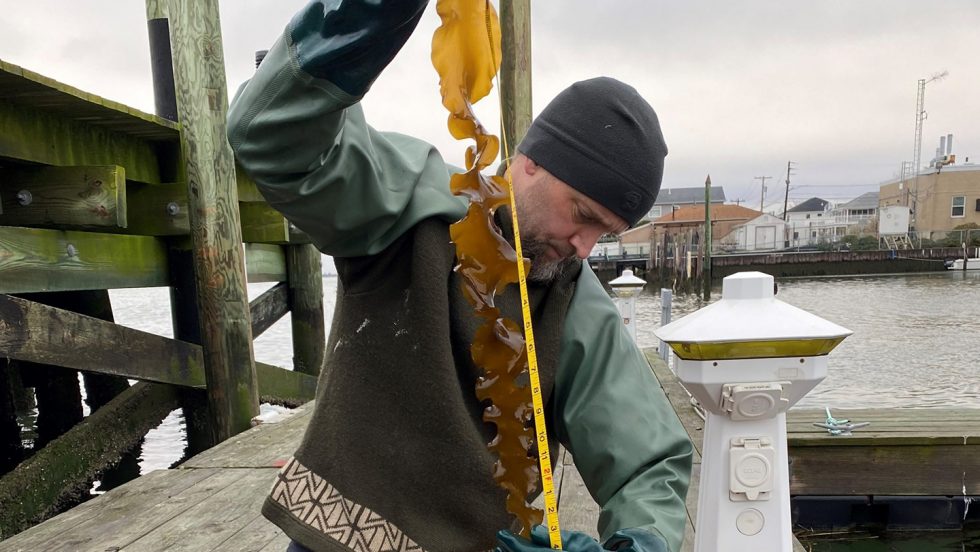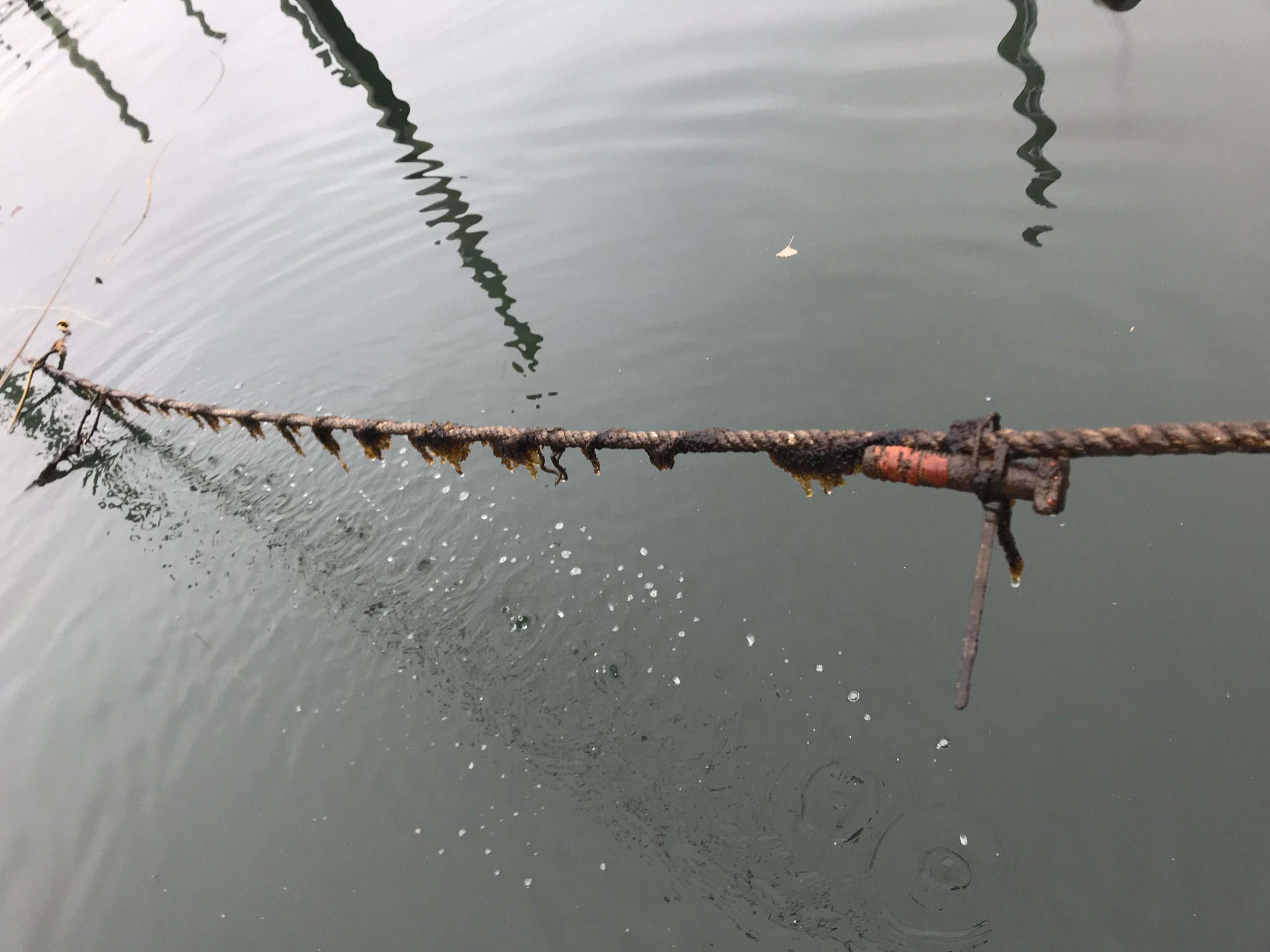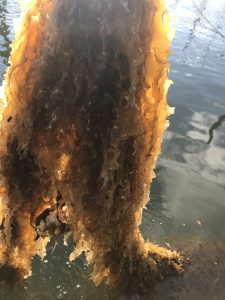
The National Fish and Wildlife Foundation (NFWF) has awarded a grant to Adelphi University faculty member Aaren Freeman, PhD, for his research on kelp as part of the Long Island Sound Futures Fund.
The National Fish and Wildlife Foundation (NFWF) has awarded a grant to Adelphi University faculty member Aaren Freeman, PhD, for his research on kelp as part of the Long Island Sound Futures Fund. With the help of this grant, Dr. Freeman hopes to determine if kelp could serve as a future seafood source in an effort to preserve marine wildlife.
The NFWF’s goal in awarding grants is to protect and restore imperiled species, promote healthy oceans and estuaries, improve working landscapes for wildlife, advance sustainable fisheries and conserve water for wildlife and people. The organization funds conservation efforts taking place in all 50 states.
During his research, Dr. Freeman, associate professor of biology and graduate coordinator of Adelphi’s Environmental Studies program, planted kelp at three sites. He has been able to sample each of two sites and harvest the kelp from one site, even during the pandemic.

“I planted the kelp on lines back in December of last year at four sites and it has been growing quite well,” said Dr. Freeman. “The major interruption that the coronavirus caused is figuring out how to sample and harvest the kelp.”
The kelp harvested will be used in a fertilizer study run by Hofstra University in collaboration with the Long Island Nitrogen Action Plan (LINAP) and the Town of Hempstead.

This marks Dr. Freeman’s third grant in the past decade. He was also awarded the New Hampshire Sea Grant and the Australian Research Council International Fellowship.
Dr. Freeman has expertise in a variety of research fields including marine biology, evolution and ecology of marine organisms, biology of invasive species, predator-prey interactions, phenotypic plasticity, and trait-mediated indirect interactions. He is also a co-founder of the Community Oyster Restoration Effort (CORE), which collects oyster shells from local restaurants and uses them to build and strengthen Long Island oyster reefs.